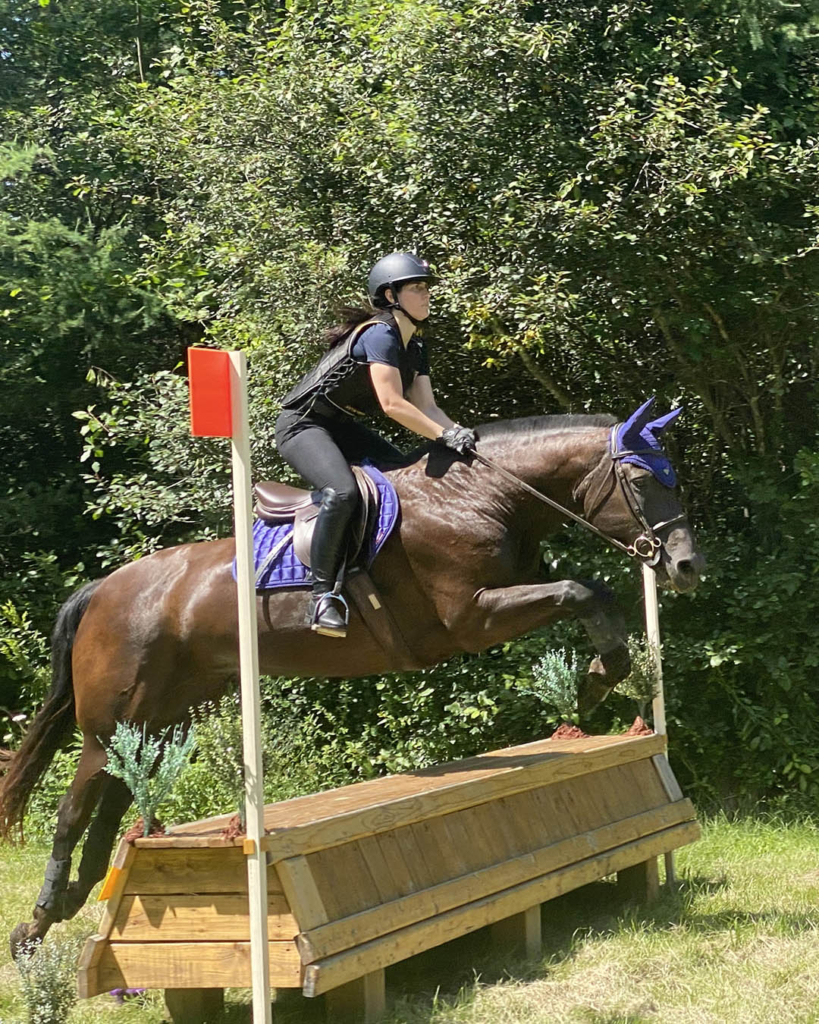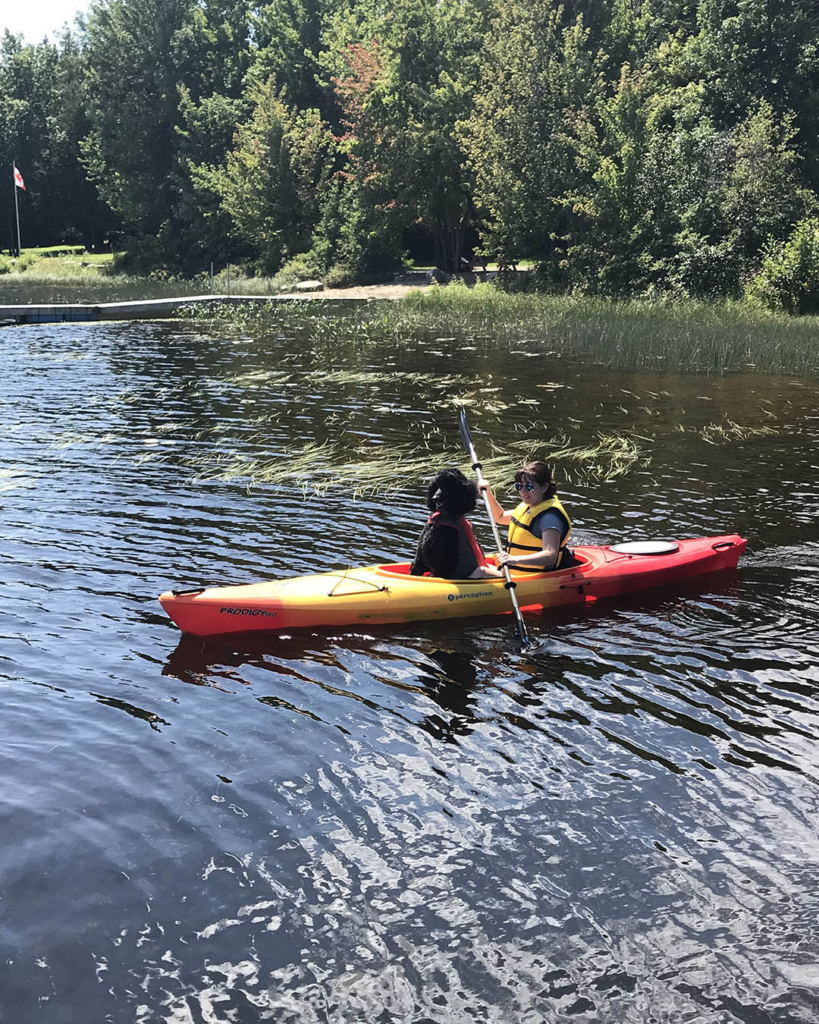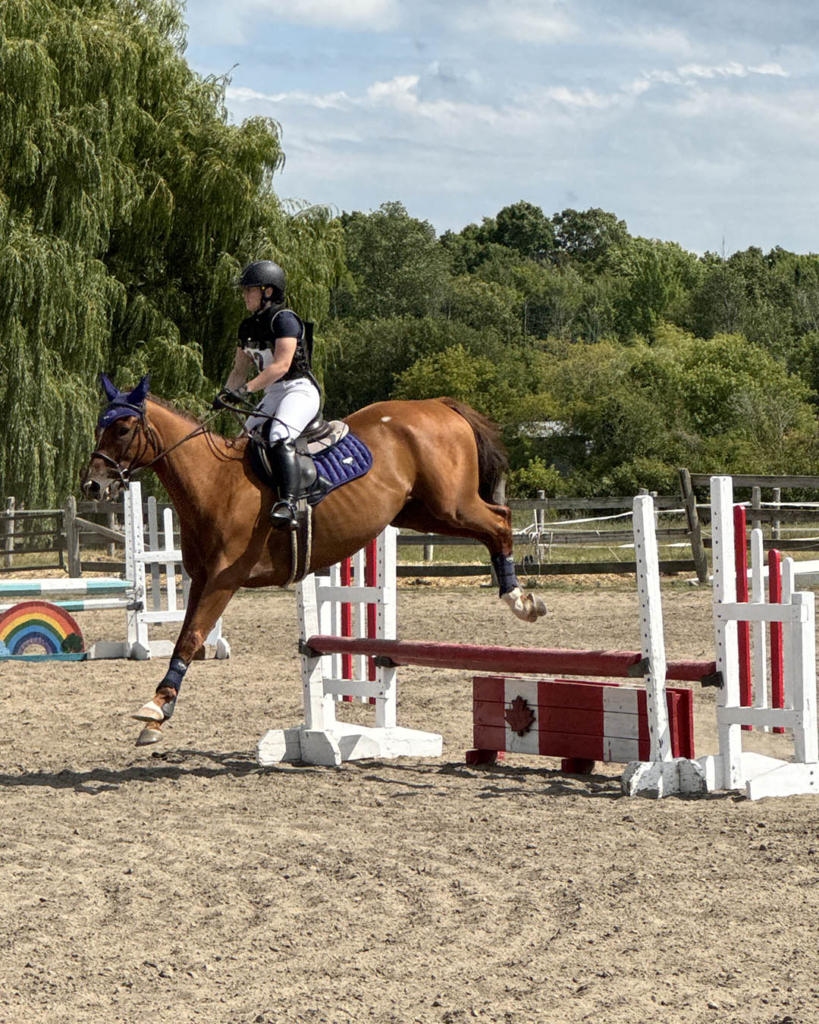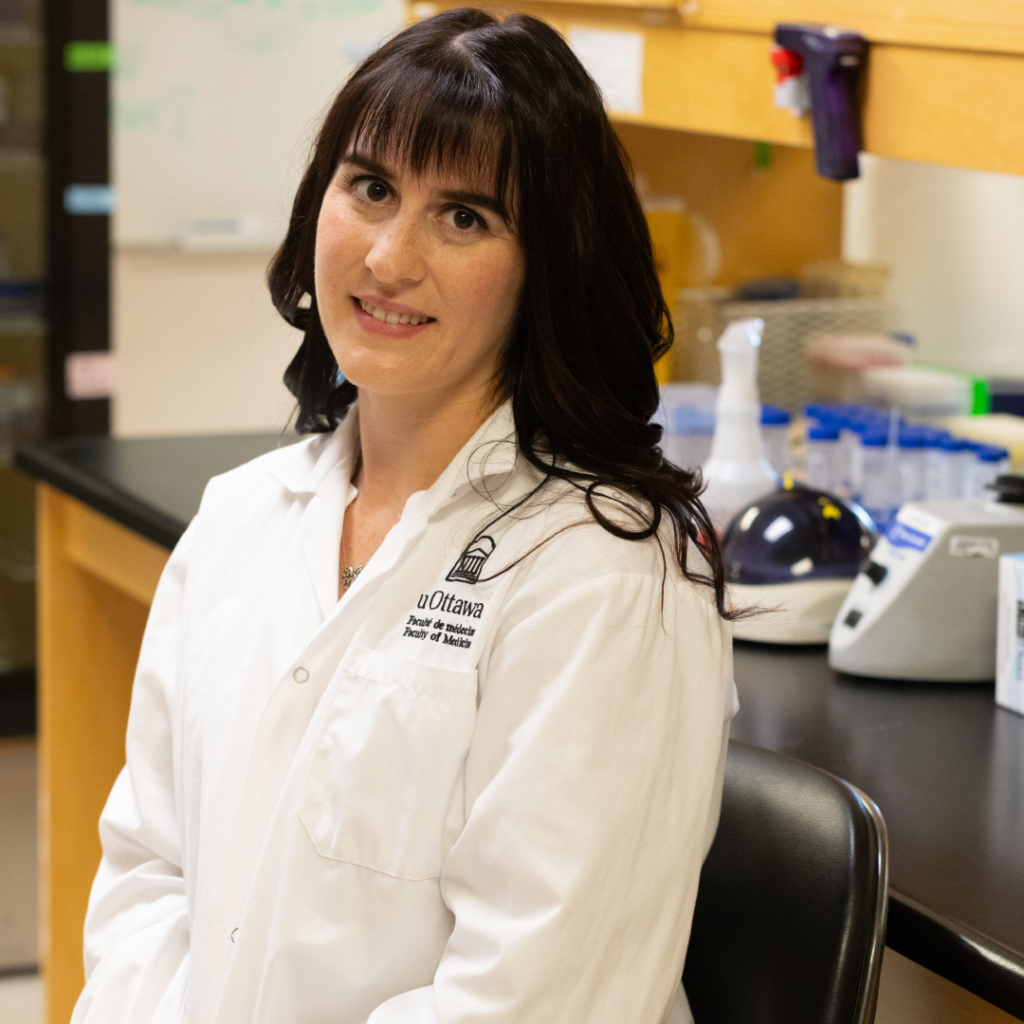
Dr. Julie Ouellette doesn’t horse around, at least not when it comes to research. As a PhD candidate at The Ottawa Hospital and the University of Ottawa, Dr. Ouellette’s work on the brain blood vessels’ role in autism spearheaded a new angle of study in neuroscience.
The study of the vascular system’s role in neurodevelopmental disorders is new ground, and Dr. Ouellette’s research adds critical information to the conversation. Enriching the multidisciplinary work happening at The Ottawa Hospital today, she helps provide hope for a better understanding of autism tomorrow.
Find out exactly what the winner of the 2025 Worton Researcher in Training Award discovered when she took a close look at the brain’s vascular system — and when you might actually find her horsing around.
Q: What were your early years like?
A: I was born and raised in Ottawa, and my family has a background in human resources and medicine. All the work ethic I’ve learned is from their daily commitment to the challenges they’ve encountered.
As a child, I was into sports, like gymnastics, soccer, and horseback riding. These taught me about teamwork and communication — and they also gave me a healthy competitive drive.
In elementary school, I enjoyed playing in gym, but I loved math and science, which makes sense now!
We had a family dog, a standard poodle, and he was very sweet, but he found ways to be mischievous. He was truly a young kid’s best friend.
Q: What did you want to be when you grew up?
A: A veterinarian! I love being with animals and taking care of them, and I was always passionate about their well-being. I didn’t like seeing them in pain, so I always wanted to help them.
Q: How did you decide to pursue neuroscience research?
A: In my undergrad, I studied biology at the University of Ottawa (uOttawa) and specialized in animal physiology, thinking I would go to vet school. But as my program moved forward, I found I was more interested in why things were happening — why they reacted or responded in the way they did, or why they didn’t.
Deciding to go into research was an accumulation of different moments, both big and small, that shaped my path. From family members being diagnosed with neurological conditions and seeing how it impacted their surroundings to taking a course on neurobiology that triggered my interest in neuroscience, the idea of chipping away at or trying to understand neurological disorders was intriguing.
Q: Do you have any unusual fears?
A: I don’t have an unusual fear, at least none that I can think of. However, I’m not a huge fan of spiders as I have severe allergic reactions to them. I try to avoid them as much as possible!
For grad school, I found Dr. Baptise Lacoste at The Ottawa Hospital. He was building a team looking at brain vasculature development and proposed that I study how the brain’s vascular system is involved in autism spectrum disorders. For me, that was a new way to study the brain, because I knew nothing about this subject. Realizing how delicate and intricate the relationship between the vascular system and a healthy brain can be made me want to pursue that path as a master’s student, and I continued as a PhD student at uOttawa.
“Julie is a highly motivated, hardworking, and persevering scientist who always aims for excellence. She has got everything to become a successful researcher!”
— Dr. Baptiste Lacoste
Q: What is the brain vascular system?
A: The brain vascular system is a network of intricate blood vessels that bring the required nutrients and oxygen to your brain for it to function properly.
Q: What does your research focus on?
A: When looking at how the brain vasculature contributed to autism, I focused on a syndrome known as 16p11.2 deletion, which is a mutation often associated with autism. We found that brain endothelial cells, which are the building blocks of the vessel wall, were dysfunctional when this deletion was present; the endothelial cells were not forming extensive vascular networks early on.
During brain development, there are so many processes going on, and so early dysfunction or dysregulation of these blood vessels could have effects in adults. Early alterations will have long-term impacts.
The project identified new targets and biomarkers that can deepen our understanding of the pathophysiology of autism spectrum disorders. It marked a paradigm shift to a better understanding of autism.
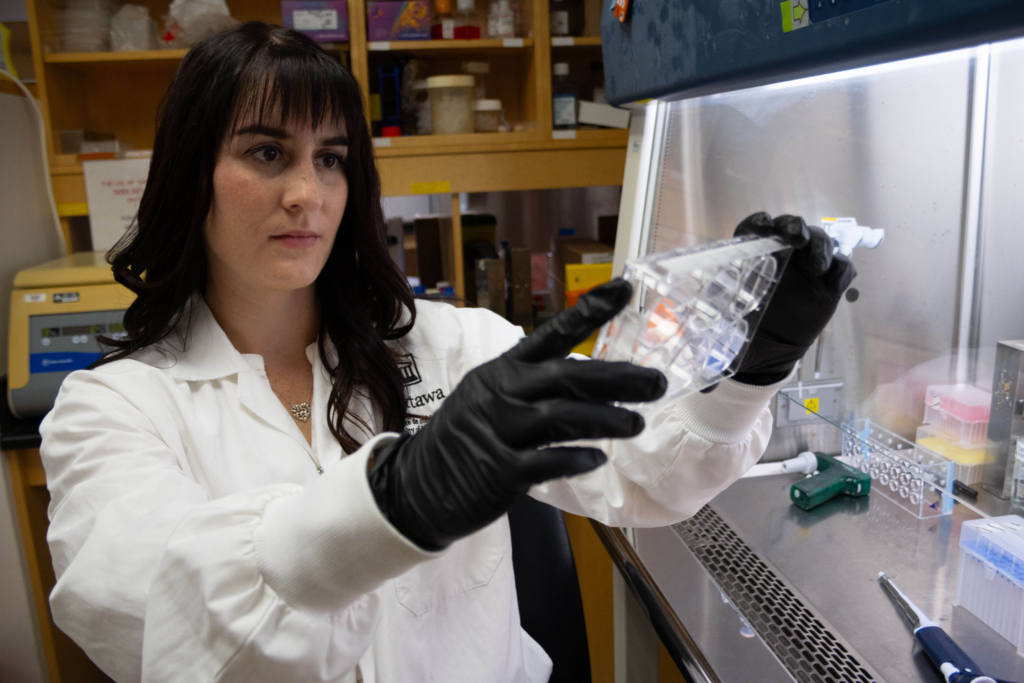
Q: How does your research help patients?
A: Identifying new targets, biomarkers, and potentially developing new therapeutics is a huge step forward in this field. This research could develop new ways to improve the well-being of individuals with autism and that of their families and caregivers.
Q: What’s something surprising about your field?
A: It’s surprising that many people picture brain blood vessels only as tubes that bring blood to the brain. However, the brain vascular system is intricate and complex. The vessels not only bring oxygen and nutrients to the brain, but they are also essential for brain development and plasticity, and ensure that the brain is working in a safe environment for neural function.
From the autism spectrum disorder side, most research is focused on neurons, nerve cells that communicate with each other. Studying autism from a vascular point of view always seems a surprise, as it is not commonly done.
Q: Do you have any books or shows you really enjoy?
A: I love reading anything that has a bit of adventure in it, like mysteries where I can see how the story develops. There’s a show that I was recently watching called High Potential, and the main character is able to identify very specific clues that nobody else sees. I always think, “Wow, I wish I could do that, but in the science world.”
Q: How is The Ottawa Hospital breaking new ground in your field?
A: Within The Ottawa Hospital, the availability of multidisciplinary researchers allows us to investigate neurodevelopmental disorders from different viewpoints. This community feeling at The Ottawa Hospital ensures that research questions are assessed from every angle possible, which is crucial to advancements in this field.
Q: Where are you working now?
A: I’m now a post-doctoral fellow at the National Research Council in the Human Health Therapeutics Research Centre. I’m continuing in the field of brain vascular abnormalities but now focusing on rare diseases. I’m bringing what I learned at The Ottawa Hospital and uOttawa and pursuing ways to build and advance innovative tools and platforms to enhance our understanding of rare diseases.
Q: How does it feel to win the 2025 Worton Researcher in Training award?
A: I’m extremely honoured to receive this award. Not only does it mean that the work is being recognized for its quality and impact, but this award really motivates me to push boundaries and try to make as many positive contributions as I can. I was speechless when I found out I won it.
Q: Who is your mentor?
A: There’s a group of people that I take tidbits from, and they create this kind of multi-person, multidisciplinary mentorship. There are my parents, who showed me how to persevere in different challenges; friends who’ve had their own challenges and thrived through them; and at work, Dr. Lacoste for sure. He’s always finding ways to push my boundaries and for me to excel in the world of research.
“Julie is an outstanding young scientist with a deep commitment to advancing our understanding of neurodevelopmental disorders.”
— Dr. Maxime W. Rousseaux
Q: What’s something your friends might not know about your job?
A: My friends are surprised that we worked with animals to model neurodevelopmental disorders. They are mostly intrigued by how that came to be and whether we are able to reproduce results relevant to humans in these models.
Q: Where would we find you when you’re not at work?
A: I try to spend as much time as possible at the barn. I’m an avid horseback rider, and I’m slowly working my way in the eventing world, a practice that can be described as similar to an equestrian triathlon. I’m currently working with one horse named Oakley, an eight-year-old thoroughbred. We are learning from one another all the time. He has this puppy dog personality and loves attention. He’s willing to try anything I throw at him.
Other than that, during the summer I like spending time at the cottage with family or friends.
